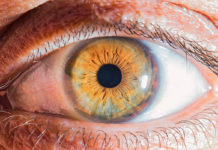 The largest study of its kind, carried out by experts at the University of Leeds, has shown the most effective test for the diagnosis of Clostridium difficile (C-Diff). C-Diff is a bacterial infection which causes 3,000 deaths a year in Britain. It affects the digestive system, and is most common in hospital patients treated with antibiotics for other infections.
The largest study of its kind, carried out by experts at the University of Leeds, has shown the most effective test for the diagnosis of Clostridium difficile (C-Diff). C-Diff is a bacterial infection which causes 3,000 deaths a year in Britain. It affects the digestive system, and is most common in hospital patients treated with antibiotics for other infections.
“The diagnosis of C-Diff has become a complicated area with lots of alternative tests, and there has been considerable uncertainty about which are the best tests to use.
“This is a landmark study not only because of its size, but also because we followed what happened to patients. This meant we have been able to show confidently which are the best tests to use to diagnose C-diff.
“C-diff cases in the NHS have decreased markedly in number since their peak in 2007-08 but reliably diagnosing C-diff is a crucial way forward to continuing to fight this infection.”
These findings highlight the importance of using appropriate tests to diagnose C-Diff, especially as it is not possible to diagnose the infection using laboratory tests. Treating patients for C-diff and preventing the spread of infections in hospitals rely on accurately identifying who has the infection, but also who may be capable of transmitting the bug. The study identified a way of using a combination of tests to identify who has C-diff and who could be at risk of spreading the bug to others.
The research has already been used as a basis for new 2012 guidelines to the NHS on the diagnosis of C-Diff.
The study was carried out at four hospital sites between October 2010 and September 2011: Leeds Teaching Hospitals NHS Trust, St George’s Healthcare NHS Trust, Oxford University Hospitals NHS Trust and University College London Hospitals NHS Foundation Trust.
The study was funded by the Department of Health and the Health Protection Agency, now known as Public Health England.
The findings have been published online in the journal Lancet Infectious Diseases.
Source: Differences in outcome according to Clostridium difficile testing method: a prospective multicentre diagnostic validation study of C difficile infection. Timothy D Planche, Kerrie A Davies, Pietro G Coen, John M Finney, Irene M Monahan, Kirsti A Morris, Lily O’Connor, Sarah J Oakley, Cassie F Pope, Mike W Wren, Nandini P Shetty, Derrick W Crook, Mark H Wilcox. The Lancet Infectious Diseases, 2013; DOI: 10.1016/S1473-3099(13)70200-7














